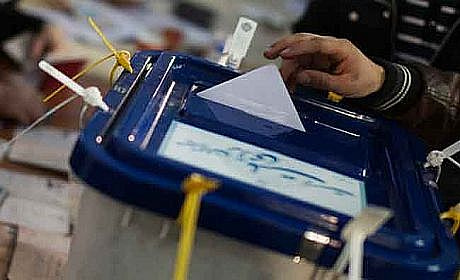Will Iran’s Future President Seek Expediency?

There is no doubt that the most important event that will impact Iran’s foreign policy in the coming year is the Iranian presidential election. This event will not only have impacts on Iran’s regional and global status, but it will also affect the balance of power in the region and one of the most important international crises.
Although the power structure in Iran is such that the president is considered as the number two, therefore not having the power to create strategic changes in the country’s foreign policy, he has the ability to create important changes in Iran’s international approach. The reason is that he has a special position in the group of senior decision-makers. He is the head of the High Council of National Security, which is one of the country’s most significant decision-making institutions and executes foreign policy and has control over the Ministry of Foreign Affairs. That is why 1989, 1997, and 2005 were important years in Iran’s foreign policy because during these years, Iran’s international behavior faced great changes with the changing of the president. In other words, during these years, the notions of détente, dialogue among civilizations and aggressive diplomacy showed different faces of Iran in the international scene; faces which have left behind different heritages for Iran and its global status.
Therefore, the viewpoints of the future president and, in general, his worldview will naturally have significant impacts on our foreign policy. Another important point which must be mentioned here is the tradition of governance in Iran; a tradition which highlights the role of individuals in the decision-making process. Iran is among the few countries wherein a special tradition of governance has strong roots, a tradition in which the role of the individual is highlighted. That is why public opinion in today’s Iran generally reduces the history of this country to the history of political personalities, and whether right or wrong, considers them as the reasons for the golden eras or dark points in this country’s long history.
In other words, Iran’s history, in the general perception, is to a great extent a history of names. This perception has also been emphasized in Iranian literature, in poems such as “Whoever came built something anew “. During this long history, the bureaucrats of yesterday and today have basically compromised with changes, rather than they themselves making any changes. Furthermore, Iran, whether as a conquering power or as a country which has repeatedly been the crossroads of important events, has been greatly affected by international developments in different periods of time. One of the results of such a background can perhaps be seen in the formation of a type of global perspective among the Iranian people and in a more expanded form among Iranian politicians. In other words, apart from intellectual differences, Iranian politicians have always addressed the world and talked about humanity as a general principle and provided global solutions. This macroscopic mentality will naturally look to play universal roles and define the diplomatic sphere of action as the global scene. In such an atmosphere, even if the president is not willing to, he has to present an idea for the whole world.
That is why each one of Iran’s presidents has had his own special worldview which has consequently affected foreign policy during his term. That is why in texts which have been written during recent years about Iran’s different periods of foreign policy, we are faced with Hashemi‘s foreign policy (détente), Khatami’s foreign policy (dialogue among civilizations), and Ahmadinejad’s foreign policy (aggressive diplomacy).
What the future president’s idea will be cannot easily be predicted, but considering the experiences and developments of recent years, he will probably seek expediency in his worldview and on that basis would attempt to find solutions for challenges Iran faces. In other words, the time for diplomacy will perhaps arrive.

